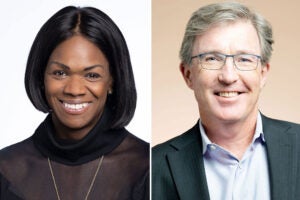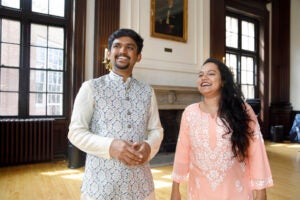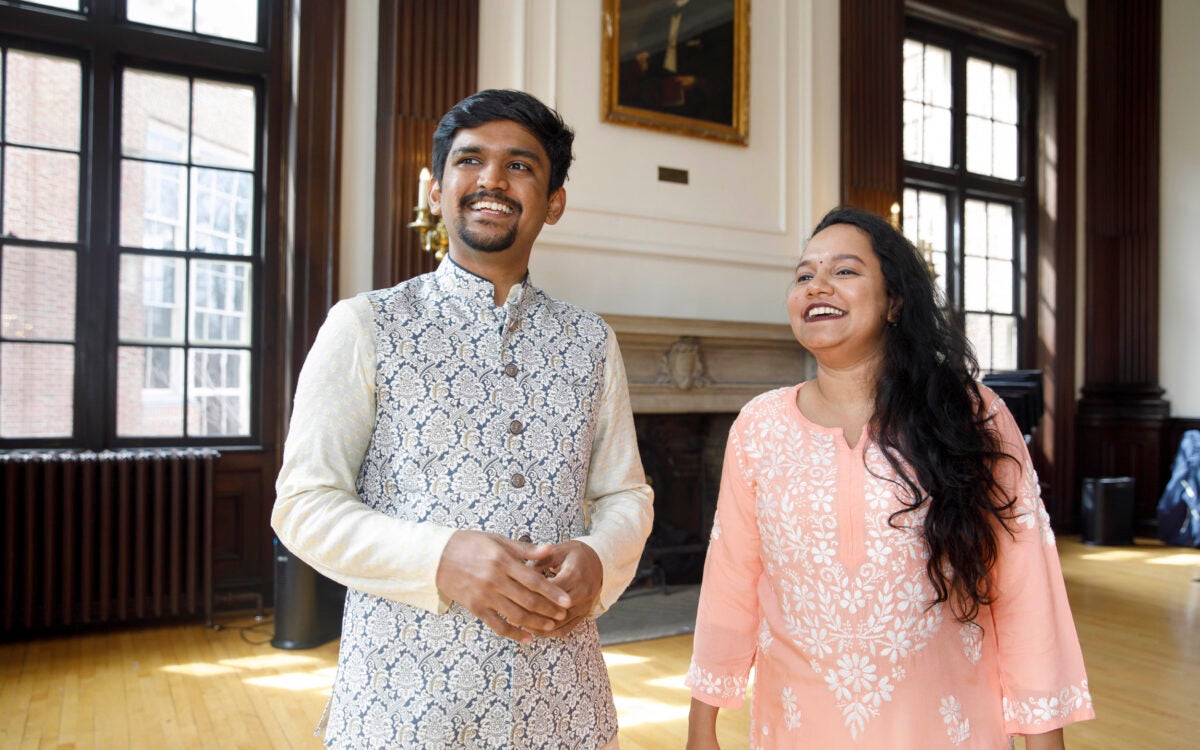Finding a place in research
Student sees Radcliffe work as pivotal to her development
Three years ago, I knew nothing about Toni Stone or the Negro League. I didn’t know a thing about baseball’s racial history, with the exception being a vague familiarity with the legacy of Jackie Robinson, the African-American player who broke the major leagues’ color barrier. I certainly didn’t know about gender in baseball.
But a year later, I held in my hands a copy of “Curveball: the Remarkable Story of Toni Stone, the First Woman to Play Baseball in the Negro League.” The author, Martha Ackmann, a former Augustus Anson Whitney Scholar in non-fiction at the Radcliffe Institute for Advanced Study, was my research mentor in what would become one of my most valuable experiences at Harvard.
Since my freshman year, I have worked at Radcliffe, researching alongside visiting fellows on a slew of projects. I am always impressed by their range, the scope of which is revealed during an annual celebratory dinner. Scientists, musicians, writers, and artists work with students, mentoring in their respective fields and researching side by side. The research element has been fundamental in my development as a student.
As a perhaps-too-confident freshman, I thought that I was well versed in research, until my fellow encouraged me to explore the abundant Harvard resources. We are all told from the outset of freshman year that Harvard has unparalleled resources: the largest collegiate library; large collections of bequeathed journals and letters; nearly 17 million volumes. Spending hours tracking books in Pusey Library or gently leafing through originals in Houghton, I’ve developed a deep appreciation for the immensity of Harvard’s holdings. Working with the Radcliffe fellows has allowed me to develop relationships with great thinkers and navigate the wealth of historic and literary sources.
More than the research, however, I have come to value the essence of cooperation that the Radcliffe Research Partnership epitomizes. Learning from people who have been trailblazers in their fields is an opportunity that few receive. Further, the administrative support at Radcliffe from both Sharon Bromberg-Lim and Marlon Cummings is extraordinary. Acting as radical activists on behalf of all researchers and fellows, they organize a remarkable program for those involved. The program is creative, dynamic, and vibrant. When I was a freshman, my desire to be involved in research was limited by my own imagination. Having had little experience with research tools, I could not imagine the possibilities that Radcliffe encourages.
As researchers guide students through their projects, they simultaneously act as mentors in various capacities, both academic and professional. I dread the day when my ID no longer gives me access to Harvard’s resources. Nevertheless, the hours spent researching for Radcliffe crafted me into a better thinker and writer than I ever hoped to be. Though I have not completed the fabled three things before graduating (nor is that likely), I am delighted that my Harvard experience has invited the intimacy of library research and the thrill of new discoveries shared with the fellows.
If you’re an undergraduate or graduate student and have an essay to share about life at Harvard, please email your ideas to Jim Concannon, the Gazette’s news editor, at Jim_Concannon@harvard.edu.




